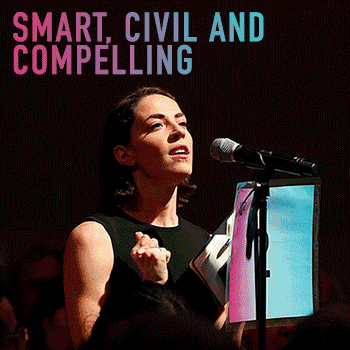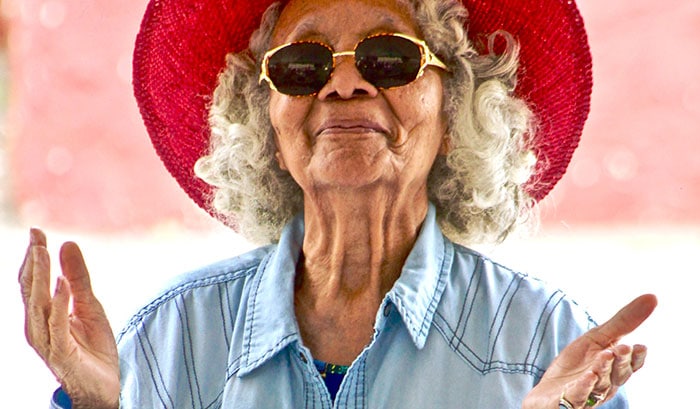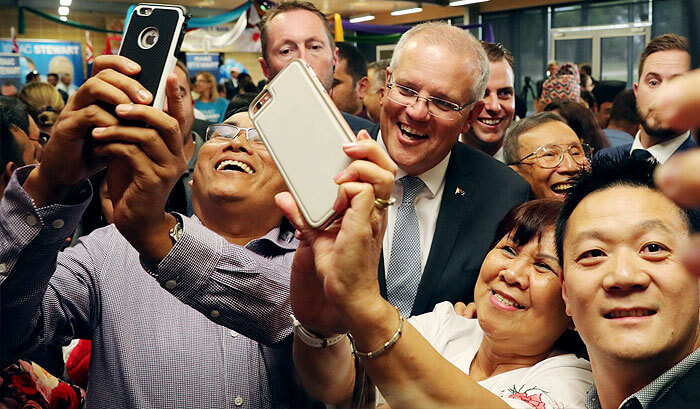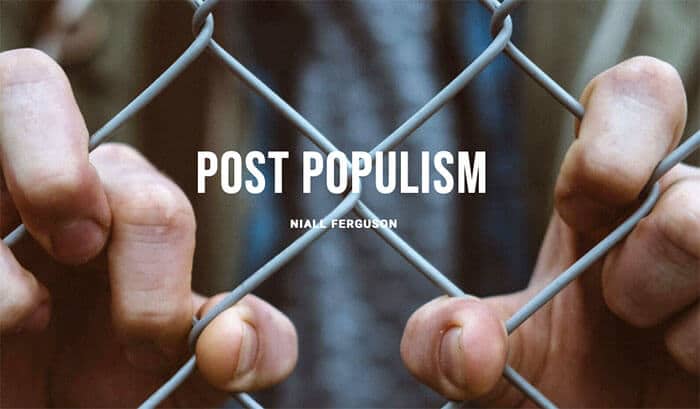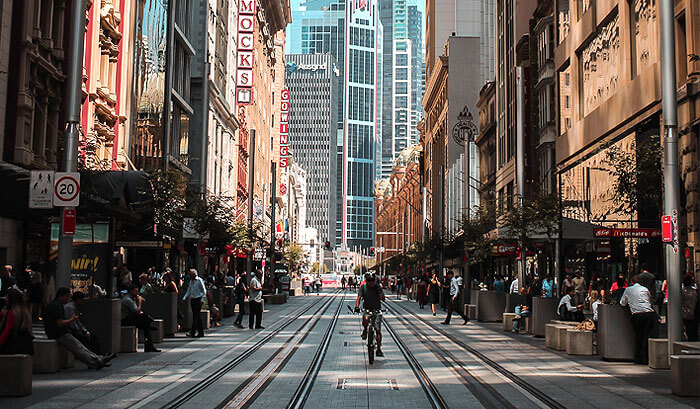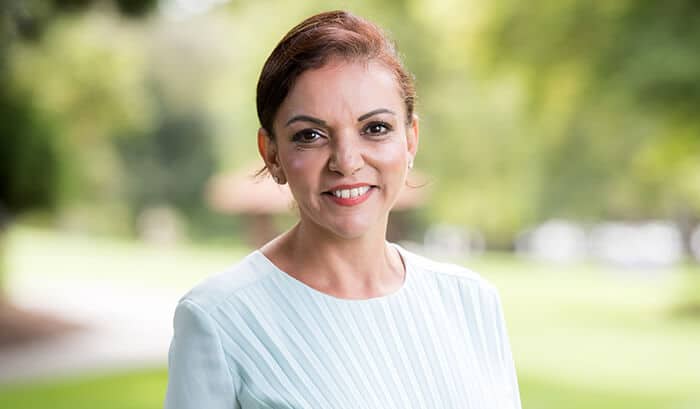Drawing a line on corruption: Operation eclipse submission

Drawing a line on corruption: Operation eclipse submission
Opinion + AnalysisBusiness + LeadershipPolitics + Human RightsSociety + Culture
BY The Ethics Centre 6 AUG 2019
The Ethics Centre (TEC) has made a submission to the NSW Independent Commission Against Corruption (ICAC) regarding its discussion paper, The Regulation of Lobbying, Access and Influence in NSW: A Chance To Have Your Say.
Released in April 2019 as part of Operation Eclipse, it’s public review into how lobbying activities in NSW should be regulated.
As a result of the submission TEC Executive Director, Dr Simon Longstaff has been invited to bear witness at the inquiry, which will also consider the need to rebuild public trust in government institutions and parliamentarians.
Our submission acknowledged the decline in trust in government as part of a broader crisis experienced across our institutional landscape – including the private sector, the media and the NGO sector. It is TEC’s view that the time has come to take deliberate and comprehensive action to restore the ethical infrastructure of society.
We support the principles being applied to the regulation of lobbying: transparency, integrity, fairness and freedom.
Key points within The Ethics Centres submission include:
-
- There is a difference between making representations to government on one’s own behalf and the practice of paying another person or party with informal government connections to advocate to government. TEC views the latter to be ‘lobbying’
-
- Lobbying has the potential to allow the government to be influenced more by wealthier parties, and interfere with the duty of officials and parliamentarians to act in the public interest
-
- No amount of compliance requirements can compensate for a poor decision making culture or an inability of officials, at any level, to make ethical decisions. While an awareness and understanding of an official’s obligations is necessary, it is not sufficient. There is a need to build their capacity to make ethical decisions and support an ethical decision making culture.
You can read the full submission here.
Update
Dr Simon Longstaff, Executive Director at The Ethics Centre, presented as a witness to the Commission on Monday 5 August. You can read the public transcript on the ICAC website here.
MOST POPULAR
ArticleHEALTH + WELLBEING
Maggie Beer: Good food can drive better aged care
ArticleHEALTH + WELLBEING
Parent planning – we should be allowed to choose our children’s sex
BY The Ethics Centre
The Ethics Centre is a not-for-profit organisation developing innovative programs, services and experiences, designed to bring ethics to the centre of professional and personal life.
Are we idolising youth? Recommended reads
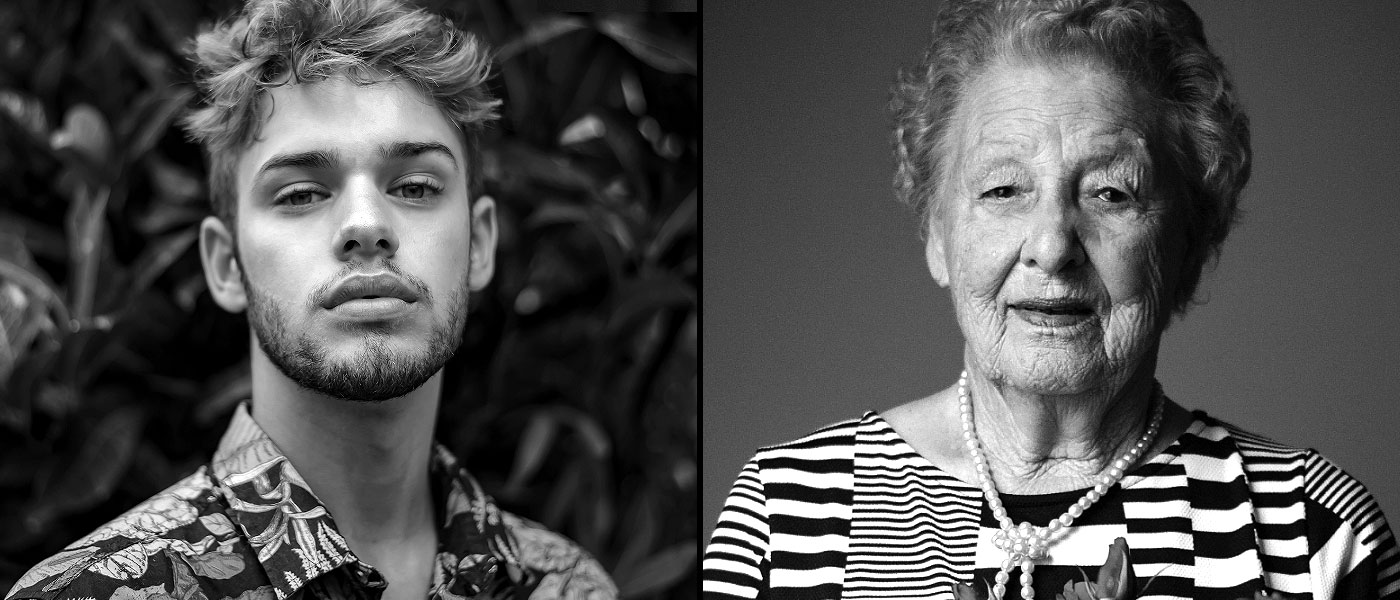
Are we idolising youth? Recommended reads
Opinion + AnalysisClimate + EnvironmentPolitics + Human Rights
BY Kym Middleton 6 JUN 2019
IQ2 Australia debates whether we need to ‘Stop Idolising Youth’ on 12 June.
Advertisers market to youth despite boomers having the strongest buying power. Unlike professions such as law and medicine, the creative industries prefer ‘digital natives’ over experience.
Young actors play mature aged characters. Yet openly teasing the young for being entitled and lazy is a popular social sport. Are the ageism insults flung both ways?
1. Why do marketers hate old people?
Ad Contrarian, Bob Hoffman / 2 December 2013
An oldie but a goodie. Bob Hoffman is the entertainingly acerbic critic of marketing and author of books like Laughing@Advertising. In this blog post he aims a crossbow at the seemingly senseless predilection of advertisers for using youth to market their products when older generations have more money and buy more stuff.
“Almost everyone you see in a car commercial is between the ages of 18 and 24,” he says. “And yet, people 75 to dead buy five times as many new cars as people 18 to 24.” He makes a solid argument.
2. It’s time to stop kvetching about ‘disengaged’ millennials
Ben Law, The Sydney Morning Herald / 27 October 2017
Ben Law asks, “Aren’t adults the ones who deserve the contempt of young people?” He argues it is older generations with influence and power who are not addressing things as big as the non-age-discriminatory climate crisis. He also shares some anecdotes about politically engaged and polite public transport riding kids.
You might regard a couple of the jokes in this piece leaning toward ageist quips but Law is also making them at his own expense. He points out millennials – the generation to which he belongs and the usual target for jokes about entitled youth – are nearing middle age.
3. Let’s end ageism
Ashton Applewhite, TED Talk / April 2017
There’s something very likeable about Ashton Applewhite – beyond her endearing name. This is even though she opens her TEDTalk with the confronting fact the one thing we all have in common is we’re always getting older. Sure, we’re not all lucky enough to get old, but we constantly age.
In pointing to this shared aspect of humanity, Applewhite makes the case against ageism. This typically TED nugget of feel good inspiration is great for every age. And if you’re anywhere between late 20s and early 70s, you’ll love the happiness bell curve. In a nutshell: it gets better!
4. Instagram’s most popular nan
Baddiewinkle, Instagram/ Helen Van Winkle
Her tagline is “stealing ur man since 1928”. Get lost in a delightful scroll through fun, colourful images from a social media personality who does not give a flying fajita for “age appropriate” dressing or demeanours. Baddie Winkle was born Helen Ruth Elam Van Winkle in Kentucky over 90 years ago.
Her internet stardom began age 85 when her great granddaughter Kennedy Lewis posted a photo of her in cut-off jeans and a tie-dye tee. Now Winkle’s granddaughter Dawn Lewis manages her profile and bookings. Her 3.8 million followers show us audiences aren’t only interested young social media influencers. “They want to be me when they get older,” Winkle says. Damn right we do.
Event info
IQ2 Australia makes public debate smart, civil and fun. On 12 June two teams will argue for and against the statement, ‘Stop Idolising Youth’. Ad writer Jane Caro and mature aged model Fred Douglas take on TV writer Ben Jenkins and author Nayuka Gorrie. Tickets here.
MOST POPULAR
ArticleHEALTH + WELLBEING
Maggie Beer: Good food can drive better aged care
ArticleHEALTH + WELLBEING
Parent planning – we should be allowed to choose our children’s sex
BY Kym Middleton
Former Head of Editorial & Events at TEC, Kym Middleton is a freelance writer, artistic producer, and multi award winning journalist with a background in long form TV, breaking news and digital documentary. Twitter @kymmidd
Are we prepared for climate change and the next migrant crisis?

Are we prepared for climate change and the next migrant crisis?
Opinion + AnalysisClimate + EnvironmentPolitics + Human Rights
BY Kate Prendergast 7 MAY 2019
A powerful infographic published in 2014, predicted how many years it would take for a world city to drown.
It used data from NASA, Sea Level Explorer, and the Intergovernmental Panel on Climate Change. Venice will be the first to go under apparently, its canals rising to wetly throttle the city of love. Amsterdam is set to follow, Hamburg next.
Other tools play out the encroachment of rising tides on our coasts. This one developed by EarthTime shows Sydney airport as a large puddle if temperatures increase by four degrees. There’s also research suggesting our ancestors may one day look down to see fish nibbling on the Opera House sails.
Climate change refugees will become reality
Sea level rise is just one effect of anthropogenic climate change that would make a place uninhabitable or inhospitable to humankind. It’s also relatively slow. Populations in climate vulnerable hotspots face a slew of other shove factors, too.
Already, we are seeing a rising frequency of extreme weather events. Climate change was linked to increasingly destructive tropical cyclones in a report published in Nature last year, and Australia’s Climate Council attributed the same to earlier and more dangerous fire seasons. Rapidly changing ecosystems will impact water resources, crop productivity, and patterns of familiar and unfamiliar disease. Famine, drought, poverty and illness are the horsemen saddling up.
Some will die as a result of these events. Others, if they are able, will choose to stay. The far sighted and privileged may pre-empt them, relocating in advance of crisis or discomfort.
These migrants can be expected to move through the ‘correct’ channels, under the radar of nativist suspicion. (‘When is an immigrant not an immigrant?’ asks Afua Hirsch. ‘When they’re rich’.)
But many more will become displaced peoples, forcibly de-homed. Research estimates this number could be anywhere between 50 million and 1 billion in the 21st century. This will prompt new waves of interstate and international flows, and a resultant redistribution and intensification of pressures and tensions on the global map.
How will the world respond?
Where will they go? What is the ethical obligation of states to welcome and provide for them? With gross denialism characterising global policies towards climate change, and intensifying hostility locking down national borders, how prepared are we to contend with this challenge to come?
“You can’t wall them out,” Obama recently told the BBC. “Not for long.”
While interstate climate migration (which may already be occurring in Tasmania) will incur infrastructural and cultural problems, international migration is a whole and humongous other ethical conundrum. Not least because currently, climate change migrants have almost no legal protections.
Is a person who moves because of a sudden, town levelling cyclone more entitled to the status of climate migrant or refugee (and the protection it affords) than someone who migrates as a result of the slow onset attrition of their livelihood due to climate change?
Who makes the rules?
Does sudden, violent circumstance carry a greater ethical demand for hospitality than if, after many years of struggle, a Mexican farmer can no longer put food on the table because his land has turned to dust? Does the latter qualify as a climate or economic migrant, or both?
Somewhat ironically (and certainly depressingly), the movement of people to climate ‘havens’ will place stress on those environmental sanctuaries themselves, potentially leading to concentrated degradation, pollution and threat to non-human nature. (On the other hand, climate migration could allow for nature to reclaim the places these migrants have left.)
There is also the argument that, once migrants from developing countries have been integrated into a host country, their carbon footprint will increase to resemble that of their new fellow citizenry – resulting in larger CO2 emissions. From this perspective, put forward by Philip Cafaro and Winthrop Staples, it is in the interests of the planet for prosperous countries to limit their welcome.
Not that privileged populations need much convincing. Jealous fear of future scarcity, a globalisation inflamed resentment towards the Other, a sense that modernity has failed to deliver on its promise of wholesale bounty: all these are conspiring to create increasingly tribalised societies that enable the xenophobic agendas of their governments. A recent poll showed that 46 percent of Australians believe immigration should be reduced, a percentage consistent with attitudes worldwide.
A divided world
In the US, there’s Trump’s grand ‘us vs them’ symbol of a wall. As reported in the Times, German lawmakers are comparing refugees to wolves. In Italy, tilting towards populism and the right, a mayor was arrested after transforming his small town into a migrant sanctuary.
Closer to home, in a country where the 27 years without recession could be linked to immigration, there’s Scott Morrison’s newly proposed immigration cuts. There’s Senator Anning blaming the Christchurch massacre on Muslim immigration. There’s the bipartisan support for the prospects, wellbeing and mental health of asylum seekers to deteriorate to such an extent, the UN human rights council described it as ‘massive abuse’.
Yet the local effects of climate change don’t have a local origin. Causality extends beyond borders, piling miles high at the feet of industrialised countries. Nations like the US and Australia enjoy high standards of living largely because we have been pillaging and burning fossil fuels for more than a century. Yet those least culpable will bear the heaviest cost.
This, argues the author of a paper published in Ethics, Policy and Environment, warrants a different ethical framework than that which applies to other kinds of migration. He concludes that industrialised nations “have a moral responsibility … to compensate for harms that their actions have caused”.
This responsibility may include investing in less developed countries to mitigate climate change effects, writes the author. But it also morally obliges giving access, security and residence to those with nowhere else to go.
MOST POPULAR
ArticleHEALTH + WELLBEING
Maggie Beer: Good food can drive better aged care
ArticleHEALTH + WELLBEING
Parent planning – we should be allowed to choose our children’s sex
BY Kate Prendergast
Kate Prendergast is a writer, reviewer and artist based in Sydney. She's worked at the Festival of Dangerous Ideas, Broad Encounters and Giramondo Publishing. She's not terrible at marketing, but it makes her think of a famous bit by standup legend Bill Hicks.
Corruption, decency and probity advice

Corruption, decency and probity advice
Opinion + AnalysisBusiness + LeadershipPolitics + Human RightsSociety + Culture
BY David Burfoot 6 MAY 2019
Corruption and probity are hot topics in Australia’s public sector. Even a cursory glance at recent cases brought before corruption watchdogs shows this.
The long running stories and court cases that follow have become a staple of national news bulletins. Any time a state asset is built, sold or disposed of, there are serious questions to be asked.
Probity – which is a corporate noun for ethics or honesty and decency – has established its place in the architecture of technical services that assess, assure and measure high-risk public sector projects. Probity advising and auditing is crucial when how a project is executed is just as important as any intended outcome.
As the line separating public and private sector accountabilities becomes less clear, non-government actors are increasingly looking to probity professionals to help ensure – and show – integrity in their dealings. However, before doing so it is important the probity professionals themselves improve the integrity of their process and gain a more sophisticated understanding of ethical frameworks.
Probity services are provided both by large accounting firms and a growing band of smaller boutique operators. Probity plans (documents that set out how the project will be run to ensure the integrity of the process) are now a mandatory requirement for many public projects.
Probity professionals use a number of lenses to monitor and promote ethical decision making in execution, typically through the following fundamentals:
Value for money: Was the market tested adequately to ensure an organisation was achieving the most competitive result, which made the best use of resources?
Conflicts of interest and impartiality: Were processes in place to manage any actual, perceived or potential conflicts of interests?
Accountability and transparency: Was an auditable trail maintained to provide evidence of the integrity of the process? Was enough information made available to promote confidence – for example, were selection criteria and time lines for decision making adequately communicated?
Confidentiality: When sensitive information from stakeholders is received, such as private or business-in-confidence information, was there a process in place to identify and protect this information?
The growth of probity services over the last 30 years undoubtedly reflects their ability to add value to projects. However, over that same period there has been concern that practitioners have at times diminished, rather than promoted, probity fundamentals. Some of the critical factors include:
- Relying too heavily on compliance monitoring at the expense of ethical considerations
- Allowing their duties to be too narrowly defined by clients
- Lacking the confidence to challenge impropriety
- Allowing themselves to be “shopped” (much like “legal advice shopping,” clients can go from one probity advisor to another until they get the advice they want).
There is also concern that public sector agencies can overuse these services, having the effect of “contracting out” their probity obligations in their regular operations.
To some extent these are symptoms of the unregulated nature of probity services. There are no formal qualifications required for probity advisors and auditors and no professional standard governing them.
Their difference from traditional audits or investigations has led to some misunderstanding of their role and judgements which can lead to unfair criticism of probity professionals, but also to exploitation by both clients and probity practitioners.
To tackle these problems and prepare for a broader role in guiding business dealings, probity practitioners need to acknowledge their own industry’s need for an ethical framework and an increasingly robust standard for professional practice.
This framework would acknowledge their implied obligation to society to be more than a mere compliance check, and, on behalf of the average Joe on the street, to be the one in the room to ask a simple pub test question: after all the boxes have been ticked, does it look and sound like an ethical process?
To do this, the profession needs to imagine its duty in broader terms than self-interest or the interest of clients, but to society in general, in line with other professions tasked with acting in the public interest.
For some time, probity professionals have used policy documents such as the NSW Code of Practice for Procurement to gauge the ethical performance of government projects. However, as their duty and work expands to different sectors and in line with changing community expectations, they will need to be able to identify the ethical frameworks peculiar to those sectors and to the organisations they are commissioned by.
Used effectively, an ethical framework is the foundation of an organisation’s culture.
When requested to provide probity related advice, The Ethics Centre includes the ethical framework amongst its list of fundamentals. This allows our clients to do more than tick boxes. It allows them to assess whether they have lived up to their ethical obligations, the values they proport to uphold and their promise to the community.
In a world in which trust is in deficit, these are important skills to have.
Ethics in your inbox.
Get the latest inspiration, intelligence, events & more.
By signing up you agree to our privacy policy
You might be interested in…
Opinion + Analysis
Business + Leadership
Moral injury is a new test for employers
Opinion + Analysis
Business + Leadership
Why businesses need to have difficult conversations
Opinion + Analysis
Politics + Human Rights, Climate + Environment
What we owe each other: Intergenerational and intertemporal justice
Opinion + Analysis
Business + Leadership
How to deal with an ethical crisis
BY David Burfoot
David has worked in the not-for-profit, public and private sectors domestically and internationally for organisations as diverse as the United Nations Development Program, Deloitte, the NSW Independent Commission Against Corruption and Sydney University. He has been an anti-corruption specialist with a number of government agencies and held senior positions responsible for corporate planning, change and internal communications.
Australia, it’s time to curb immigration

Australia, it’s time to curb immigration
Opinion + AnalysisClimate + EnvironmentPolitics + Human Rights
BY Satya Marar 3 MAY 2019
A majority of Australians welcome immigrants. So why then do opinion polls of young and old voters alike across the political divide, now find majority support for reducing our immigration intake?
Perhaps it could be for the same reason that faith in our political system is dwindling at a time of strong economic growth. Australia is the ‘lucky country’ that hasn’t had a recession in the last 28 years.
Yet we’ve actually had two recessions in this time if we consider GDP on a per-capita basis. This, combined with stagnant real wage growth and sharp increases in congestion and the price of housing and electricity in our major cities, could explain why the Australian success story is inconsistent with the lived experience of so many of us.
The decline of the Australian dream?
Our current intake means immigration now acts as a ponzi scheme.
The superficial figure of a growing headline GDP fuelled by an increasing population masks the reality of an Australian dream that is becoming increasingly out of reach for immigrants and native-born Australians alike.
We’ve been falsely told we’ve weathered economic calamities that have stunned the rest of the world. When taken on a per-capita basis, our economy has actually experienced negative growth periods that closely mirror patterns in the United States.
We’re rightly told we need hardworking immigrants to help foot the bill for our ageing population by raising productivity and tax revenue. Yet this cost is also offset when their ageing family members or other dependents are brought over. Since preventing them from doing so may be cruel, surely it’s fairer to lessen our dependence on their intake if we can?
A lack of infrastructure
Over 200,000 people settle in Australia every year, mostly in the major cities of Sydney and Melbourne. That’s the equivalent of one Canberra or greater Newcastle area a year.
Unlike the United States, most economic opportunities are concentrated in a few major cities dotting our shores. This combined with the failures of successive state and federal governments to build the infrastructure and invest in the services needed to cater for record population growth levels driven majorly by immigration.
A failure to rezone for an appropriate supply of land, mean our schools are becoming crowded, our real estate prohibitively expensive, our commutes are longer and more depressing, and our roads are badly congested.
Today, infrastructure is being built, land is finally being rezoned to accommodate higher population density and more housing stock in the outer suburbs, and the Prime Minister has made regional job growth one of his major priorities.
But these issues should have been fixed ten years ago and it’s increasingly unlikely that they will be executed efficiently and effectively enough to catch up to where they need to be should current immigration intake levels continue for the years to come.
Our governments have proven to be terrible central planners, often rejecting or watering down the advice of independent expert bodies like Infrastructure Australia and the Productivity Commission due to political factors.
Why would we trust them to not only get the answer right now, but to execute it correctly? Our newspapers are filled daily with stories about light rail and road link projects that are behind schedule.
All of it paid for by taxpayers like us.
Foreign workers or local graduates?
Consider also the perverse reality of foreign workers brought to our shores to fill supposed skill gaps who then struggle to find work in their field and end up in whatever job they can get.
Meanwhile, you’ll find two separate articles in the same week. One from industry groups cautioning against cutting skilled immigration due to shortages in the STEM fields. The other reporting that Australian STEM graduates are struggling to find work in their field.
Why would employers invest resources in training local graduates when there’s a ready supply of experienced foreign workers? What incentive do universities have to step in and fill this gap when their funding isn’t contingent on employability outcomes?
This isn’t about nativism. The immigrants coming here certainly have a stake in making sure their current or future children can find meaningful work and obtain education and training to make them job ready.
There’s only one way to hold our governments accountable so the correct and sometimes tough decisions needed to sustain our way of life and make the most of the boon that immigration has been for the country, are made. It’s to wean them off their addiction to record immigration levels.
Lest the ponzi scheme collapse.
And frank conversations about the quantity and quality of immigration that the sensible centre of politics once held, increasingly become the purview of populist minor parties who have experienced resurgence on the back of widespread, unanswered frustrations about unsustainable immigration that we are ill-prepared for.
This article was produced in association with IQ2: Should Australia curb immigration? With powerful arguments presented at both ends of the spectrum, it was a debate that raised issues from urban planning to government policy, environmental impacts to economic advantages and more.
MOST POPULAR
ArticleHEALTH + WELLBEING
Maggie Beer: Good food can drive better aged care
ArticleHEALTH + WELLBEING
Parent planning – we should be allowed to choose our children’s sex
BY Satya Marar
Satya Marar is an Indian-born, Sydney based writer, public commentator and Director of Policy at the Australian Taxpayers’ Alliance. He took part in the IQ2 debate, ‘Curb Immigration’
Where do ethics and politics meet?

Where do ethics and politics meet?
Opinion + AnalysisPolitics + Human Rights
BY The Ethics Centre 26 APR 2019
In the Western philosophical tradition, ethics and politics were frequently deemed to be two sides of a single coin.
Aristotle’s Ethics sought to answer the question of what is a good life for an individual person. His Politics considered what is a good life for a community (a polis). So, for the Ancient Greeks, at least, the good life existed on an unbroken continuum ranging from the personal through the familial to the social.
In some senses, this reflected an older belief that individuals exist as part of society. Indeed, in many cultures – in the Ancient world and today – the idea of an isolated individual makes little sense. Yet, there are a few key moments in Western philosophy when we see the individual emerging.
St Thomas Aquinas argued that no individual or institution has ‘sovereignty’ over the well-informed conscience of the individual.
René Descartes placed the self-certain subject at the centre of all knowledge and in doing so undermined the authority of institutions that based their claims to superiority on revelation, tradition or hierarchy. Reason was to take centre stage.
Aquinas and Descartes, along with many others, helped set the foundation for a modern form of politics in which the conscientious judgement of the individual takes precedence over that of the community.
Today, we observe a global political landscape in which ethics can be hard to detect. It’s easy to say that many politicians are ruled by naked greed, fear, opinion polls, blind ideology or a lust for power.
This probably isn’t fair to the many politicians who apply themselves to their responsibilities with care and diligence.
In the end, ethics is about living an examined life – something that should apply whether the choices to be made are those of an individual, a group or a whole society.
MOST POPULAR
ArticleHEALTH + WELLBEING
Maggie Beer: Good food can drive better aged care
ArticleHEALTH + WELLBEING
Parent planning – we should be allowed to choose our children’s sex
BY The Ethics Centre
The Ethics Centre is a not-for-profit organisation developing innovative programs, services and experiences, designed to bring ethics to the centre of professional and personal life.
People with dementia need to be heard – not bound and drugged
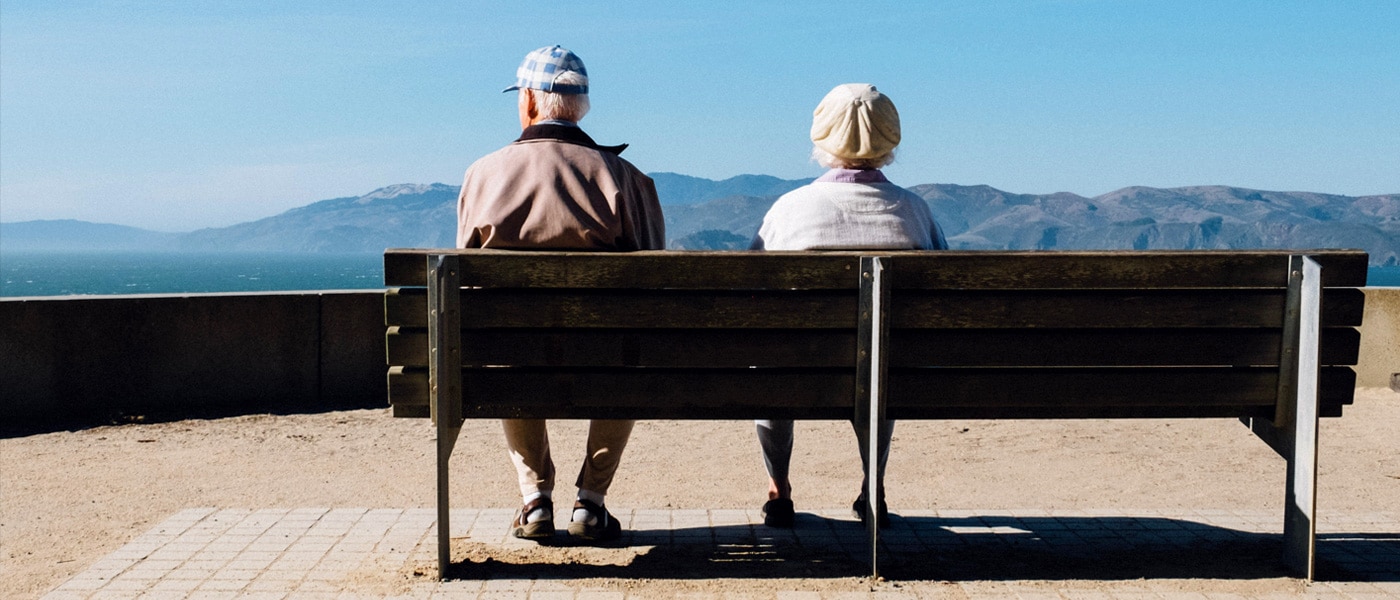
People with dementia need to be heard – not bound and drugged
Opinion + AnalysisHealth + WellbeingPolitics + Human RightsRelationships
BY Kate Prendergast 24 APR 2019
It began in Oakden. Or, it began with the implosion of one of the most monstrously run aged care facilities in Australia, as tales of abuse and neglect finally came to light.
That was May 2017. Two years on, we are in the midst of the first Royal Commission into Aged Care Quality and Safety, announced following a recommendation by the Scott Morrison government.
The first hearings began this year in Oakland’s city of Adelaide. They have seen countless brave witnesses come forward to share their experiences of what it’s like to live within the aged care system or see a loved one deteriorate or die – sometimes peacefully, sometimes painfully – within it.
In May, the third hearing round will take place in Sydney. This round will hear from people in residential aged care, with a focus on people living with dementia – who make up over 50 percent of residents in these facilities.
With our burgeoning ageing population, the number of people being diagnosed with dementia is expected to increase to 318 people per day by 2025 and more than 650 people by 2056.
Encompassing a range of different illnesses, including Alzheimer’s disease, vascular dementia and Lewy body disease, its symptoms are particularly cruel, dissolving intellect, memory and identity. In essence, dementia describes the gradual estrangement of a person from themselves – and from everyone who knew them.
It is one of the most prevalent health problems affecting developed nations today – and one of the most feared. Contrary to widespread belief, one in 15 sufferers are in their thirties, forties and fifties.
Physical restraints
How do you manage these incurable conditions? How can you humanely care for the remnants of a person who becomes more and more unrecognisable?
One thing the Royal Commission has made clear: you don’t do it by defaulting to dehumanising mechanisms of restraint.
Unlike in the UK or the US, there are currently no regulations around use of restraints in aged care facilities. It is commonly resorted to by aged care workers if a patient displays physical aggression, or is a danger to themselves or others.
Yet it is also used in order to manage patients perceived as unruly in chronically understaffed facilities, when the risk of leaving them unsupervised is seen to be greater than the cost of depriving them their free movement and self-esteem. The problem of how to minimise harm in these conditions is an ongoing and high-pressure dilemma for staff.
Readers may remember the distressing footage from January’s 7.30 Report, in which dementia patients were seen sedated and strapped to chairs. One of them was the 72-year-old Terry Reeves. Following acts of aggression towards a male nurse, he was restrained for a total of 14 hours in a single day. His wife, however, had authorised that her husband be restrained with a lap belt if he was “a danger to himself or others”.
Maree McCabe, director of Dementia Australia, is vocal about why physical restraints should only be used as a last resort.
“We know from the research that physical restraint overall shows that it does not prevent falls,” she says. “In fact it may cause injury, and it may cause death.”
While there are circumstances where restraint may be appropriate McCabe says, “it is not there as a prolonged intervention”. Doing so, she says, “is an infringement of their human rights”.
After the 7.30program aired and one day before the Royal Commission hearings began, the federal government committed to stronger regulations around restraint, including that homes must document the alternatives they tried first.
Restraint by drugging
Another kind of restraint which has come into focus through the Royal Commission is chemical restraint. Psychotropic medication is currently prescribed to 80 percent of people with dementia in residential care – but it is only effective 10 percent of the time.
“We need to look at other interventions,” says McCabe. “The first to look at is: why is the person behaving in the way that they are? Why are they responding that way? It could be that they’re in pain. It could be something in the environment that is distressing them.”
She notes people with dementia often have “perceptual disturbances” – “things in the environment that look completely fine to us might not to someone living with dementia”. Wouldn’t you act out of character if your blue floor suddenly became a miniature sea, or a coat hanging on the door turned into the Babadook?
“It’s about people understanding of what it’s like to stand in the world of people living with dementia and simulate that experience for them,” says McCabe.
Whether through physical force or prescription, a dependence on restraint shows the extent to which dementia is misunderstood at the detriment of the autonomy and dignity of the sufferers. This misunderstanding is compounded by the fact that dementia is often present among other complex health problems.
Yet, and as the media may sensationally suggest, the aged care sector isn’t staffed by the callous or malicious. It is filled with good people, who are often overstretched, emotionally taxed and exhausted.
Dementia Australia is advocating for mandatory training on dementia for all people who work in aged care. This covers residential aged care, but could also extend to hospitals. Crucially, it encompasses community workers, too.
“Of the 447,000 Australians living with dementia, 70 percent live in the community and 30 percent live alone,” notes McCabe. “It’s harder to monitor community care, it’s less visible and less transparent. We have to make sure that the standards are across the board.”
It is only through listening to people living with dementia – recognising that while yes, they have a degenerative cognitive disease, they deserve to participate in the decision-making around their life and wellbeing – that our approach to it has evolved. Previously, people believed that it was dangerous to allow sufferers to cook, even to go out unaccompanied.
Likewise, it is crucial that we continue to afford people with dementia the full rights of personhood, however unfamiliar they may become. Only then can meaningful reform be made possible.
Besides, if for no other reason (and there are many other reasons), action is in our own selfish interest. The chances, after all, that you or someone you love will develop dementia are high.
MOST POPULAR
ArticleHEALTH + WELLBEING
Maggie Beer: Good food can drive better aged care
ArticleHEALTH + WELLBEING
Parent planning – we should be allowed to choose our children’s sex
BY Kate Prendergast
Kate Prendergast is a writer, reviewer and artist based in Sydney. She's worked at the Festival of Dangerous Ideas, Broad Encounters and Giramondo Publishing. She's not terrible at marketing, but it makes her think of a famous bit by standup legend Bill Hicks.
Increase or reduce immigration? Recommended reads

Increase or reduce immigration? Recommended reads
Opinion + AnalysisClimate + EnvironmentPolitics + Human Rights
BY Kym Middleton 21 MAR 2019
Immigration is the hot election issue connecting everything from mismanaged water and mass fish deaths in the Murray Darling to congested cities and unaffordable housing.
The 2019 IQ2 season kicks off with ‘Curb Immigration’ on 26 March. It’s something Prime Minister Scott Morrison promised to do today if re-elected and opposition leader Bill Shorten has committed to considering.
Here’s a collection of ideas, research, articles and arguments covering the debate.
New migrants to go regional for permanent residency, under PM’s plan
Scott Morrison, SBS News / 20 March 2019
Prime Minister Scott Morrison revealed his immigration plan today. He confirmed reports he will lower the cap on Australia’s immigration intake from 190,000 to 160,000 for the next four years. He announced 23,000 visa places that require people to live and work in regional Australia for three years before they can apply for permanent residency. “It is about incentives to get people taking up the opportunities outside our big cities” and “it’s about busting congestion in our cities”, Morrison said.
————
Australian attitudes to immigration: a love / hate relationship
The Ethics Centre, The New Daily / 24 January 2019
You’ll hear Australians talk about our country as either a multicultural utopia or intolerant mess. This article charts many recent surveys on our attitudes to immigration. The results show almost equal majorities of us love and hate it for different reasons, suggesting individual people both support and reject immigration at the same time. We’re complex creatures.
————
Post Populism
Niall Ferguson, Festival of Dangerous Ideas / 4 November 2018
At the Festival of Dangerous Ideas on Cockatoo Island, Niall Ferguson presented his take on the five ingredients that have bred the nationalistic populism sweeping the western world today. Point one: increased immigration. Listen to the podcast or watch the video highlights. Elsewhere, Ferguson points to Brexit and the European migrant crisis and predicts, “the issue of migration will be seen by future historians as the fatal solvent of the EU”.
————
Human Flow movie
Ai Weiwei / 2017
Part documentary and part advocacy, Human Flow is a film by Chinese artist Ai Weiwei that “gives a powerful visual expression” to the 65 million people displaced from their homes by climate change, war or famine. It is not the story of ‘orderly migration’ based on skilled visas or spatial planning policies, but rather, one of mass flows across countries and continents.
————
Government needs to wake up to impact of population boom
PM, ABC RN / 23 February 2018
IQ2 guest and human geographer Dr Jonathan Sobels is interviewed by Linda Mottram on the impact of Australia’s population growth on the continent’s natural environment. He’s not the only person concerned about this. A 2019 study by ANU found 75 percent of Australians agree the environment is already under too much pressure with the current population size.
————
Counter-terrorism expert Anne Aly: ‘I dream of a future in which I’m no longer needed’
Greg Callaghan, The Sydney Morning Herald / 18 November 2016
Dr Anne Aly is a counter terrorism expert come politician with “instant relatability”, according to this feature piece on her. Get to know more about her interesting life and career before catching her at IQ2 where she’ll argue against the motion ‘Curb Immigration’. Aly is the Labor Member for the West Australian electorate of Cowan and first female Muslim parliamentarian in Australia.
————
Event info
Get your IQ2 ‘Curb Immigration’ tickets here
Satya Marar & Jinathan Sobels vs Anne Aly & Nicole Gurran
27 March 2019 | Sydney Town Hall
MOST POPULAR
ArticleHEALTH + WELLBEING
Maggie Beer: Good food can drive better aged care
ArticleHEALTH + WELLBEING
Parent planning – we should be allowed to choose our children’s sex
BY Kym Middleton
Former Head of Editorial & Events at TEC, Kym Middleton is a freelance writer, artistic producer, and multi award winning journalist with a background in long form TV, breaking news and digital documentary. Twitter @kymmidd
After Christchurch

After Christchurch
Opinion + AnalysisBusiness + LeadershipPolitics + Human RightsRelationships
BY Simon Longstaff 19 MAR 2019
What is to be said about the murder of innocents?
That the ends never justify the means? That no religion or ideology transmutes evil into good? That the victims are never to blame? That despicable, cowardly violence is as much the product of reason as it is of madness?
What is to be said?
Sometimes… mute, sorrowful silence must suffice. Sometimes… words fail and philosophy has nothing to add to our intuitive, gut-wrenching response to unspeakable horror.
Thus, we bow our heads in silence… to honour the dead, to console the living, to be as one for the sake of others.
In that silence… what is to be said?
Nothing.
Yet, I feel compelled to speak. To offer some glimmer of insight that might hold off the dark — the dark shades of vengeance, the dark tides of despair, the dark pools of resignation.
So, I offer this. Even in the midst of the greatest evil there are people who deny its power. They are rare individuals who perform ‘redemptive’ acts that affirm what we could be. Some call them saints or heroes. They are both and neither. They are ordinary people who act with pure altruism – solely for the sake of others, with nothing to gain.
One such person is with me every day. The Polish doctor and children’s author, Janusz Korczak, cared for orphaned Jewish children confined to the Warsaw Ghetto. At last, the time came when the children were to be transported to their place of extermination. Korczak led his children to the railway station — but was stopped along the way by German officers. Despite being a Jew, Korczak was so revered as to be offered safe passage.
To choose life, all he need do was abandon the children. At the height of the Nazi ascendancy, Korczak had no reason to think that he would be remembered for a heroic but futile death. He had nothing to gain. Yet, he remained with the children and with them went to his death. He did so for their sake — and none other. In that decision, he redeemed all humanity — because what he showed is the other face of our being, the face that repudiates the murderer, the terrorist, the racist…the likes of Brenton Tarrant.
I know that many people do not believe in altruism. They will offer all manner of reasons to explain it away, finding knotholes of self-interest that deny the nobility of Janusz Korczak’s final act. They are wrong. I have seen enough of the world to know that pure acts of altruism are rare — but real. And it only takes one such act to speak to us of our better selves.
We will never know precisely what happened in those mosques targeted in Christchurch. However, I believe that, in the midst of the terror, there were people who performed acts of bravery, born out of altruism, of a kind that should inspire and ultimately comfort us all.
Most of these stories will be untold — lost to the silence. Of a few, we may hear faint whispers. But believe me, the acts behind those stories are every bit as real as the savagery they confronted and confounded. And even when whispered, they are more powerful.
Evil born of hate can never prevail. It offers nothing and consumes all — eventually eating its own. That is why good born of love must win the ultimate victory. Where hate takes, love gives — ensuring that, in the end, even a morsel of good will tip the balance.
You might say to me that this is not philosophy. Where is the crisp edge of logic? Where is the disinterested and dispassionate voice of reason? Today, that voice is silent. Yet, I hope you can hear the truth all the same.
Dr Simon Longstaff AO is Executive Director of The Ethics Centre.
Ethics in your inbox.
Get the latest inspiration, intelligence, events & more.
By signing up you agree to our privacy policy
You might be interested in…
Opinion + Analysis
Health + Wellbeing, Politics + Human Rights
Constructing an ethical healthcare system
Explainer
Relationships
Ethics Explainer: Begging the question
Opinion + Analysis
Relationships
If women won the battle of the sexes, who wins the war?
Explainer
Relationships
Ethics Explainer: Plato’s Cave
BY Simon Longstaff
Simon Longstaff began his working life on Groote Eylandt in the Northern Territory of Australia. He is proud of his kinship ties to the Anindilyakwa people. After a period studying law in Sydney and teaching in Tasmania, he pursued postgraduate studies as a Member of Magdalene College, Cambridge. In 1991, Simon commenced his work as the first Executive Director of The Ethics Centre. In 2013, he was made an officer of the Order of Australia (AO) for “distinguished service to the community through the promotion of ethical standards in governance and business, to improving corporate responsibility, and to philosophy.” Simon is an Adjunct Professor of the Australian Graduate School of Management at UNSW, a Fellow of CPA Australia, the Royal Society of NSW and the Australian Risk Policy Institute.
Not too late: regaining control of your data

Not too late: regaining control of your data
Opinion + AnalysisBusiness + LeadershipPolitics + Human RightsScience + Technology
BY The Ethics Centre 15 MAR 2019
IT entrepreneur Joanne Cooper wants consumers to be able to decide who holds – and uses – their data. This is why Alexa and Siri are not welcome in her home.
Joanne won’t go to bed with her mobile phone on the bedside table. It is not that she is worried about sleep disturbances – she is more concerned about the potential of hackers to use it as a listening device.
“Because I would be horrified if people heard how loud I snore,” she says.
She is only half-joking. As an entrepreneur in the field of data privacy, she has heard enough horror stories about the hijacking of devices to make her wary of things that most of us now take for granted.
“If my device, just because it happened to be plugged in my room, became a listening device, or a filming device, would that put me in a compromising position? Could I have a ransomware attack?”
(It can happen and has happened. Spyware and Stalkerware are openly advertised for sale.)
Taking back control
Cooper is the founder of ID Exchange – an Australian start-up aiming to allow users to control if, when and to whom they will share their data. The idea is to simplify the process so that people will be able to visit one platform to control access.
This is important because, at present, it is impossible to keep track of who has your data and how much access you have agreed to and whether you have allowed it to be used by third parties. If you decide to revoke that access, the process is difficult and time-consuming.
Big data is big business
The data that belongs to you is liquid gold for businesses wanting to improve their offerings and pinpoint potential customers. It is also vital information for government agencies and a cash pot for hackers.
Apart from the basic name, address, age details, that data can reveal the people to whom you are connected, your finances, health, personality, preferences and where you are located at any point in time.
That information is harvested from everyday interactions with social media, service providers and retailers. For instance, every time you answer a free quiz on Facebook, you are providing someone with data.
Google Assistant uses your data to book appointments
With digital identity and personal data-related services expected to be worth $1.58 trillion in the EU alone by 2020, Cooper asks whether we have consciously given permission for that data to be shared and used.
A lack of understanding
Do we realise what we have done when we tick a permission box among screens of densely-worded legalese? When we sign up to a loyalty program?
A study by the Consumer Policy Research Centre finds that 94 per cent of those surveyed did not read privacy policies. Of those that did, two-thirds said they still signed up despite feeling uncomfortable and, of those, 73 per cent said they would not otherwise have been able to access the service.
And, what we are getting in return for that data? Do we really want advertisers to know our weak points, such as when we are in a low mood and susceptible to “retail therapy”? Do we want them to conclude we are expecting a new baby before we have had a chance to announce it to our own families?
Even without criminal intent, limited control over the use of our data can have life-altering consequences when it is used against us in deciding whether we may qualify for insurance, a loan, or a job.
“It is not my intention to create fear or doubt or uncertainty about the future,” explains Cooper. “My passion is to drive education about how we have to become “self-accountable” about the access to our data that will drive a trillion-dollar market,” she says.
“Privacy is a Human Right.”
Cooper was schooled in technology and entrepreneurialism by her father, Tom Cooper, who was one of the Australian IT industry’s pioneers. In the 1980s, he introduced the first IBM Compatible DOS-based computers into this country.
She started working in her father’s company at the age of 15 and has spent the past three decades in a variety of IT sectors, including the PC market, consulting for The Yankee Group, as a cloud specialist for Optus Australia, and financial services with Allianz Australia.
Starting ID Exchange in 2015, Cooper partnered with UK-based platform Digi.me, which aims to round up all the information that companies have collected on individuals, then hand it over those individuals for safekeeping on a cloud storage service of their choosing. Cooper is planning to add in her own business, which would provide the technology to allow people to opt in and opt out of sharing their data easily.
Cooper says she became passionate about the issue of data privacy in 2015, after watching a 60 Minutes television segment about hackers using mobile phones to bug, track and hack people through a “security hole” in the SS7 signaling system.
This “hole” was most recently used to drain bank accounts at Metro Bank in the UK, it was revealed in February.
Lawmakers aim to strengthen data protection
The new European General Data Protection Regulation is a step forward in regaining control of the use of data. Any Australian business that collects data on a person in the EU or has a presence in Europe must comply with the legislation that ensures customers can refuse to give away non-essential information.
If that company then refuses service, it can be fined up to 4 per cent of its global revenue. Companies are required to get clear consent to collect personal data, allows individuals to access the data stored about them, fix it if it is wrong, and have it deleted if they want.
The advance of the “internet of things” means that everyday objects are being computerised and are capable of collecting and transmitting data about us and how we use them. A robotic vacuum cleaner can, for instance, record the dimensions of your home. Smart lighting can take note of when you are home. Your car knows exactly where you have gone.
For this reason, Cooper says she will not have voice-activated assistants – such as Google’s Home, Amazon Echo’s Alexa or Facebook’s Portal – in her home. “It has crossed over the creepy line,” she says.
“All that data can be used in machine learning. They know what time you are in the house, what room you are in, how many people are in the conversation, keywords.”
Your data can be compromised
Speculation that Alexa is spying on us by storing our private conversations has been dismissed by fact-checking website Politifact, although researchers have found the device can be hacked.
The devices are “always-on” to listen for an activating keyword, but the ambient noise is recorded one second at a time, with each second dumped and replaced until it hears a keyword like “Alexa”.
However, direct commands to those two assistants are recorded and stored on company servers. That data, which can be reviewed and deleted by users, is used to a different extent by the manufacturers.
Google uses the data to build out your profile, which helps advertisers target you. Amazon keeps the data to itself but may use that to sell you products and services through its own businesses. For instance, the company has been granted a patent to recommend cough sweets and soup to those who cough or sniff while speaking to their Echo.
In discussions about rising concerns about the use and misuse of our data, Cooper says she is frustrated by those who tell her that “privacy is dead” or “the horse has bolted”. She says it is not too late to regain control of our data.
“It is hard to fix, it is complex, it is a u-turn in some areas, but that doesn’t mean that you don’t do it.”
It was not that long ago that publicly disagreeing with your employer’s business strategy or staging a protest without the protection of a union, would have been a sackable offence.
But not today – if you are among the business “elite”.
Last year, 4,000 Google employees signed a letter of protest about an artificial intelligence project with the Department of Defense. Google agreed not to renew the contract. No-one was fired.
Also at Google, employees won concessions after 20,000 of them walked out protesting the company’s handling of sexual harassment cases. Everyone kept their jobs.
Consulting firms Deloitte and McKinsey & Company and Microsoft have come under pressure from employees to end their work with the US Department of Immigration and Customs Enforcement (ICE), because of concerns about the separation of children from their illegal immigrant parents.
Amazon workers demanded the company stop selling its Rekognition facial recognition software to law enforcement.
Examples like these show that collective action at work can still take place, despite the decline of unionism, if the employees are considered valuable enough and the employer cares about its social standing.
The power shift
Charles Wookey, CEO of not-for-profit organisation A Blueprint for Better Business says workers in these kinds of protests have “significant agency”.
“Coders and other technology specialists can demand high pay and have some power, as they hold skills in which the demand far outstrips the supply,” he told CEO Magazine.
Individual protesters and whistle-blowers, however, do not enjoy the same freedom to protest. Without a mass of colleagues behind them, they can face legal sanction or be fired for violating the company’s code of conduct – as was Google engineer James Damore when he wrote a memo criticising the company’s affirmative action policies in 2017.
Head of Society and Innovation at the World Economic Forum, Nicholas Davis, says technology has enabled employees to organise via message boards and email.
“These factors have empowered employee activism, organisation and, indeed, massive walkouts –not just around tech, by the way, but around gender and about rights and values in other areas,” he said at a forum for The Ethics Alliance in March.
Change coming from within
Davis, a former lawyer from Sydney, now based in Geneva, says even companies with stellar reputations in human rights, such as Salesforce, can face protests from within – in this case, also due to its work with ICE.
“There were protesters at [Salesforce annual conference] Dreamforce saying: ‘Guys, you’re providing your technology to customs and border control to separate kids from their parents?,” he said.
Staff engagement and transparency
Salesforce responded by creating Silicon Valley’s first-ever Office of Ethical and Humane Use of Technology as a vehicle to engage employees and stakeholders.
“I think the most important thing is to treat it as an opportunity for employee engagement,” says Davis, adding that listening to employee concerns is a large part of dealing with these clashes.
“Ninety per cent of the problem was not [what they were doing] so much as the lack of response to employee concerns,” he says. Employers should talk about why the company is doing the work in question and respond promptly.
“After 72 hours, people think you are not taking this seriously and they say ‘I can get another job, you know’, start tweeting, contact someone in the ABC, the story is out and then suddenly there is a different crisis conversation.”
Davis says it is difficult to have a conversation about corporate social activism in Australia, where business leaders say they are getting resistance from shareholders.
“There’s a lot more space to talk about, debate, and being politically engaged as a management and leadership team on these issues. And there is a wider variety of ability to invest and partner on these topics than I perceive in Australia,” says Davis, who is also an adjunct professor with Swinburne University’s Institute for Social Innovation.
“It’s not an issue of courage. I think it’s an issue with openness and demand and shifting culture in those markets. This is a hard conversation to have in Australia. It seems more structurally difficult,” he says.
“From where I stand, Australia has far greater fractures in terms of the distance between the public, private and civil society sectors than any other country I work in regularly. The levels of distrust here in this country are far higher than average globally, which makes for huge challenges if we are to have productive conversations across sectors.”
MOST POPULAR
ArticleHEALTH + WELLBEING
Maggie Beer: Good food can drive better aged care
ArticleHEALTH + WELLBEING




